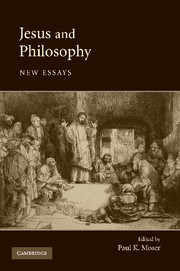6 - Jesus and Aquinas
Published online by Cambridge University Press: 05 June 2012
Summary
Jesus was to Aquinas what water is to a fish. Thomas's parents deposited him in a monastery at age five. His teenaged rebellion was to leave the monastery for the Dominicans. He thought, taught, and preached about Jesus for his entire adulthood. He saw other ways to live, but he knew no other life than one with Jesus at its core. When we ask about Christ's relation to Thomas's philosophy, however, some raise a difficulty: Thomas did not think of himself as a philosopher and wrote few purely philosophical works. But the difficulty can be overstated. There are certainly in Thomas deliberately given answers to questions philosophers ask, understood as such, and arguments supporting these that do not take as premises authorities of the Christian faith – scripture, creeds, and so on. It is no misnomer to call Thomas a philosopher, even if he might have been uncomfortable with the label.
I now discuss Christ's relation to that in Aquinas which is philosophical under three heads. I first note his metaphysical framing of what philosophy seeks and an argument he gives for accepting that Christ has the role in philosophy Thomas gives him. I next suggest how Christ actually affects Thomas's practice of philosophy. I finally consider some concrete ways Thomas reacted as a Christian to his most prominent philosophical source, Aristotle, suggesting that Thomas makes some effort to show that Christian theology completes thinking about God that Aristotle did not take far enough.
- Type
- Chapter
- Information
- Jesus and PhilosophyNew Essays, pp. 124 - 146Publisher: Cambridge University PressPrint publication year: 2008



